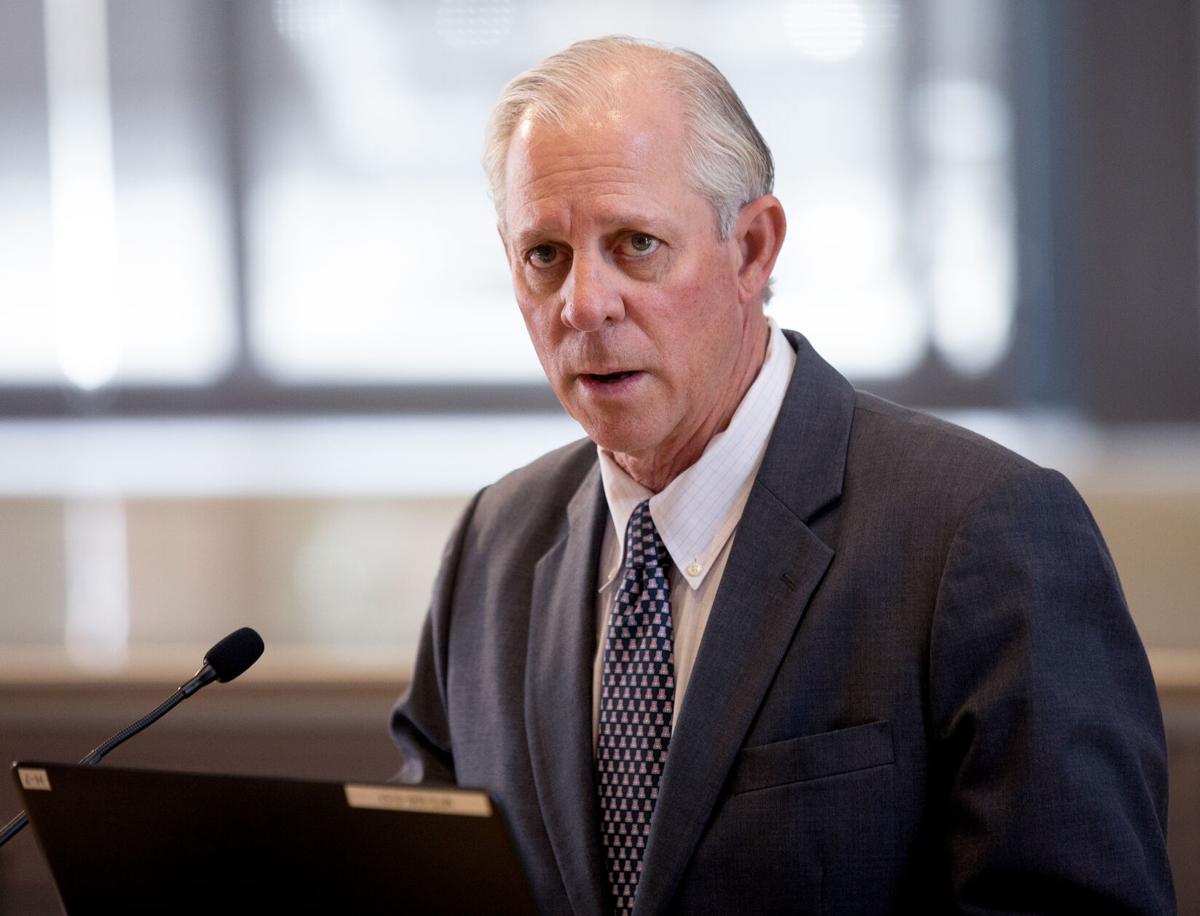University of Arizona President Robert C. Robbins is creating a new form of shared governance, an announcement that comes just after a regent encouraged him to “establish new faculty leadership.”
Robbins and his team are finalizing an official charter for the newly created University Advisory Council, which will include a “wide group of important campus stakeholders” he will appoint including faculty, staff and students.
“The council will offer guidance on a variety of matters of significance, including efforts to improve our university’s quality and reputation and the evaluation of strategies to enhance the university’s ability to achieve its central mission of teaching, research and service,” Robbins wrote in an email Monday night to UA employees.
The announcement comes on the heels of criticism from the UA’s Faculty Senate, which has faulted Robbins and the Arizona Board of Regents for their handling of the university’s $177 million deficit in recent months.
In last Thursday’s ABOR meeting, Regent Lyndel Manson encouraged Robbins to “establish new faculty leadership.”
In an interview with the Arizona Daily Star on Wednesday, Manson shared her excitement about the new council.
“I think what President Robbins has done is he’s in the process of establishing a new group of faculty and students and staff that are really focused on providing input and looking for positive solutions,” she said. “These are the kinds of people that (we) need to form a partnership with.”
Robbins wrote that the council will serve as an “additional channel for communication” between the president’s office and campus constituents.
The new entity will complement the already established shared governance partners including the Faculty Senate, the Staff Council, the Associated Students of the UA, the Graduate and Professional Student Council and the Strategic Planning and Budget Advisory Committee. SPBAC is a mix of both elected and appointed positions, but the rest of the current modes of shared governance are fully elected.
Unlike the other modes of shared governance, this council will not have elected members. Robbins said he is working with deans and “other leaders” to identify inaugural council members who will be appointed by the president.
In a statement to the Star, Faculty Senate Chair Leila Hudson said that “naturally the president is free to talk to whoever he wants to, but rest assured, the (Faculty) Senate is not going anywhere.”
The role of shared governance at public universities in the state is currently being debated in the State House after House Bill 2735, which would limit the role of shared governance models and give more power to ABOR and university presidents, passed the House Appropriations Committee earlier this month.
Robbins’ group will hold its first meeting in March and its members will be announced in the coming weeks.
“I believe in hearing from more voices, not fewer,” Robbins wrote. “Along with our existing shared governance bodies, UAC will bring together faculty, staff and student perspectives to help us navigate complex issues facing higher education and the University of Arizona.”
Katharine Zeiders, secretary-elect of the Faculty Senate and a representative of the College of Agriculture, Life and Environmental Sciences, questioned how creating a non-elected group qualified as shared governance.
“This only creates an echo chamber for administrators and upholds the patronage model where folks who either only agree with senior leadership or are in positions that are too precarious to disagree are elevated to appointed positions,” she wrote in an email to the Star on Wednesday. “We don’t need patronage and privilege; we need dedication and democracy.”
Zeiders added that anything under shared governance should require a democratic process.
“Those that serve the mission of the university — teachers and educators, staff and public servants — should have a say in how well it serves the public,” she wrote. “Presidents and regents come and go every few years, but the faculty and staff are often here for their careers. They come for the money; we stay for the mission.”
Tessa Dysart, the current secretary of the Faculty Senate, said in an interview Wednesday that she was in favor of the new council.
“One of the things that I’ve appreciated about President Robbins is his willingness to listen to a multitude of voices,” she said. “I think any action that allows him to hear from more faculty, staff and student perspectives is a good thing.”
Dysart added that she was excited about the “new and fresh voices” the council will provide.
“I think it increases the depth of and breadth of shared governance,” she said.
Get your morning recap of today's local news and read the full stories here: tucne.ws/morning





